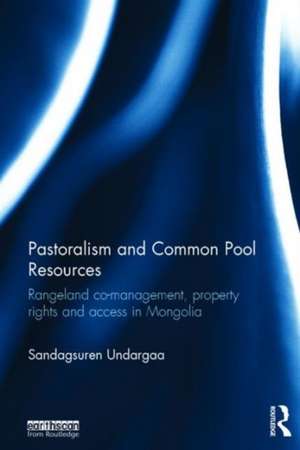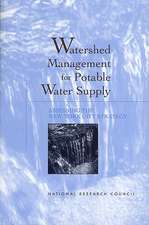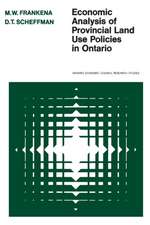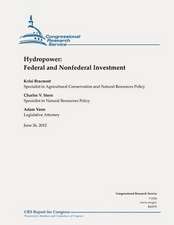Pastoralism and Common Pool Resources: Rangeland co-management, property rights and access in Mongolia
Autor Sandagsuren Undargaaen Limba Engleză Hardback – 11 apr 2016
The author presents an in-depth exploration and analysis of mobile pastoral production and resource management in Mongolia. The country is widely considered to be a prime example of successful and resilient common pool resource management, but now faces a dilemma as policy advocates attempt to adjust historical pastoralism to a modern property regime framework.
The book strengthens understanding of the complex and multilateral considerations involved in natural resource governance and management in a mobile pastoralist context. It considers the implications for common pool resource management and pastoral societies in Africa, Russia and China and includes recommendations for formulating national policy.
| Toate formatele și edițiile | Preț | Express |
|---|---|---|
| Paperback (1) | 416.22 lei 6-8 săpt. | |
| Taylor & Francis – 10 apr 2018 | 416.22 lei 6-8 săpt. | |
| Hardback (1) | 1111.55 lei 6-8 săpt. | |
| Taylor & Francis – 11 apr 2016 | 1111.55 lei 6-8 săpt. |
Preț: 1111.55 lei
Preț vechi: 1355.55 lei
-18% Nou
Puncte Express: 1667
Preț estimativ în valută:
212.72€ • 221.26$ • 175.61£
212.72€ • 221.26$ • 175.61£
Carte tipărită la comandă
Livrare economică 15-29 aprilie
Preluare comenzi: 021 569.72.76
Specificații
ISBN-13: 9781138847484
ISBN-10: 1138847488
Pagini: 272
Ilustrații: 64 black & white illustrations, 19 black & white tables, 25 black & white halftones, 20 black & white line drawings
Dimensiuni: 156 x 234 x 22 mm
Greutate: 0.52 kg
Ediția:1
Editura: Taylor & Francis
Colecția Routledge
Locul publicării:Oxford, United Kingdom
ISBN-10: 1138847488
Pagini: 272
Ilustrații: 64 black & white illustrations, 19 black & white tables, 25 black & white halftones, 20 black & white line drawings
Dimensiuni: 156 x 234 x 22 mm
Greutate: 0.52 kg
Ediția:1
Editura: Taylor & Francis
Colecția Routledge
Locul publicării:Oxford, United Kingdom
Public țintă
PostgraduateCuprins
1. Mobile Pastoralism, Access and Policy 2. Understanding Common Pool Resource Management and Rangeland Management 3. Mobile Pastoralism and the Pre-collective Period (13th -20th Century) 4. Mobile Pastoralism and the Collectivization (1921-1991) 5. Pastoral Production and Pastureland Management During Transition to a Market Economy 6. Land Reform in Pastureland Management 7. Community-based Natural Resource Management 8. State Territorial Strategy for Natural Resource Governance and Pastoral Production 9. Conclusion
Recenzii
"Sandagsuren Undargaa has written an excellent book. Utilizing common pool resource theory and access theory, she has developed a conceptual framework for analyzing the institutional, legal, socio-economic and political processes shaping mobile pastoralism in Mongolia. A convincing work regarding the dynamics shaping property relations, land and resource access in Mongolia which is of wide relevance." – John F. McCarthy, Crawford School of Public Policy, The Australian National University.
"In the newly published book, Pastoralism and Common Pool Resources: Rangeland co-management, property rights and access in Mongolia, author Undargaa ‘puts property in its place’. Using Mongolia as a case study, Undargaa highlights the inability of contemporary institutional theories to adequately recognize other production components of the mobile pastoral economy, such as labour and livestock. In doing so, she brings a fresh perspective to the Mongolian literature in this space and, perhaps more importantly, maps out potential institutional avenues for resolving the symptomatic issues of elite capture, conflict and lost production opportunities." - Jane Addison in Pastoralism (December 2017)
"In the newly published book, Pastoralism and Common Pool Resources: Rangeland co-management, property rights and access in Mongolia, author Undargaa ‘puts property in its place’. Using Mongolia as a case study, Undargaa highlights the inability of contemporary institutional theories to adequately recognize other production components of the mobile pastoral economy, such as labour and livestock. In doing so, she brings a fresh perspective to the Mongolian literature in this space and, perhaps more importantly, maps out potential institutional avenues for resolving the symptomatic issues of elite capture, conflict and lost production opportunities." - Jane Addison in Pastoralism (December 2017)
Descriere
This book questions the application of exclusive property rights to mobile pastoralism and rangeland resource governance and argues that this approach inadequately represents property relations in the context of common pool resources.

















